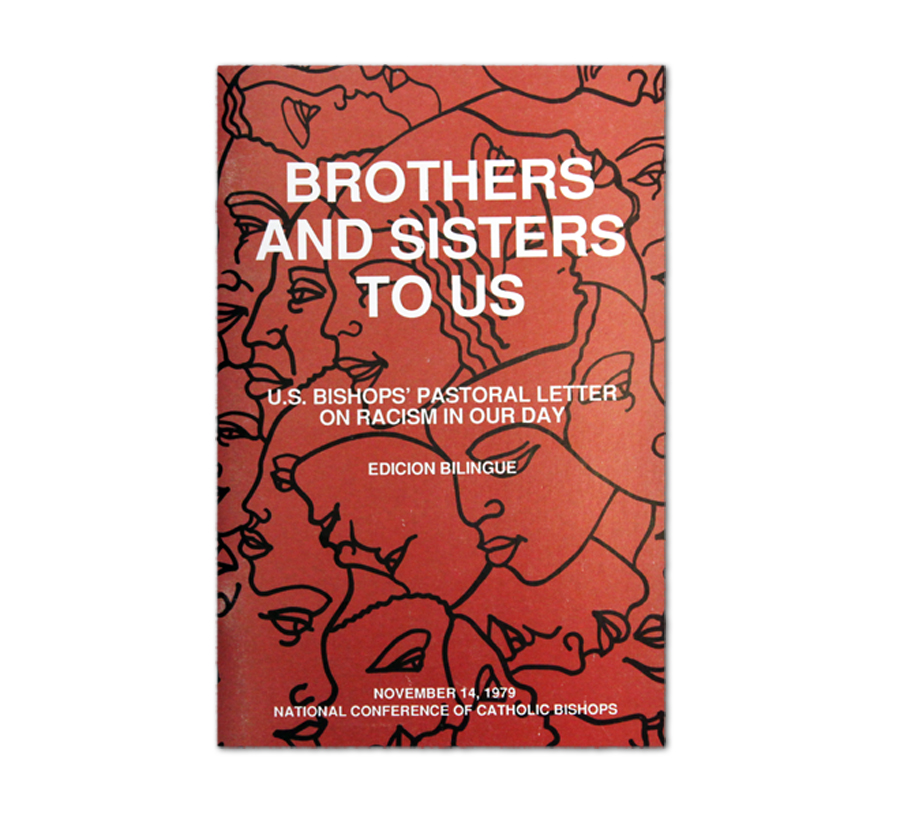“Brothers and Sisters to Us”: A Reflection
share
By Sister Patricia McCann
The annual observance of Martin Luther King, Jr., Day invites us once again to reflect upon racism, which remains a critical concern in American life, and to explore what we can do to eliminate it.
In 1979 the United States Catholic bishops issued a pastoral letter on racism entitled “Brothers and Sisters to Us.” Thirty-seven years later racial inequality, bigotry and misunderstanding continue to be part of the fabric of American life.
The opening lines of the pastoral frame the situation which prompted the bishops to speak: “Racism is an evil which endures in our society and in our Church. Despite apparent advances and even significant changes in the last two decades [e.g., 1960s and 70s], the reality of racism remains” (paragraph 1).
Twenty years before the pastoral letter, 1958, the bishops had decried the legal segregation (including separate schools, voting eligibility and Jim Crow laws) which then existed in large parts of the United States. They pointed to segregation as a “moral evil that denied human persons their dignity as children of God and their God-given rights” (paragraph 1).
The church’s stance that racism constitutes an important moral concern challenging persons of faith is clear. “Evil” and “sin” are not words used lightly in church documents; they speak to conscience formation. “Brothers and Sisters to Us” uses the clear moral language of Catholic teaching:
Racism is a sin: a sin that divides the human family, blots out the image of God among specific members of that family, and violates the fundamental human dignity of those called to be children of the same Father. Racism is the sin that says some human beings are inherently superior and others essentially inferior because of races. It is the sin that makes racial characteristics the determining factor for the exercise of human rights (paragraph 6).
Sadly, the areas of American life in which the bishops found racial bias in 1979 is not too different from a list we might draw up today. They cited economic concerns: systemic poverty, job availability, unemployment rates and voting restrictions. They noted the wide gap in educational opportunity and available housing between white neighborhoods and black neighborhoods. The pastoral letter observed: “The educational, legal and financial systems, along with other structures and sectors of our society, impede people’s progress and narrow their access because they are black, Hispanic, Native American or Asian” (paragraph 9).
Undoubtedly, progress has been made to alter this reality in the three and a half decades since 1979. Events surrounding the horrific shootings in Mother Emmanuel Church in Charleston, South Carolina, in June 2015 heightened awareness of the fact that we still have a long way to go. Dangerous tensions exist between the police and the black community in many places. Racial profiling continues to be common practice, especially for black, Hispanic and Middle Eastern young men. Bigotry and racial slurs still dot our actions and language all too often. Perhaps it is time for Catholics, clergy and laity, to pull this 37-year-old pastoral letter from a dusty shelf and together study, pray about and talk over the challenge it presents to us now. If we actually apply the church’s moral teaching about racism to contemporary problems, it could move us closer to resolution of the fears that keep us from being brothers and sisters to one another.
“Brothers and Sisters to Us” is available online.

